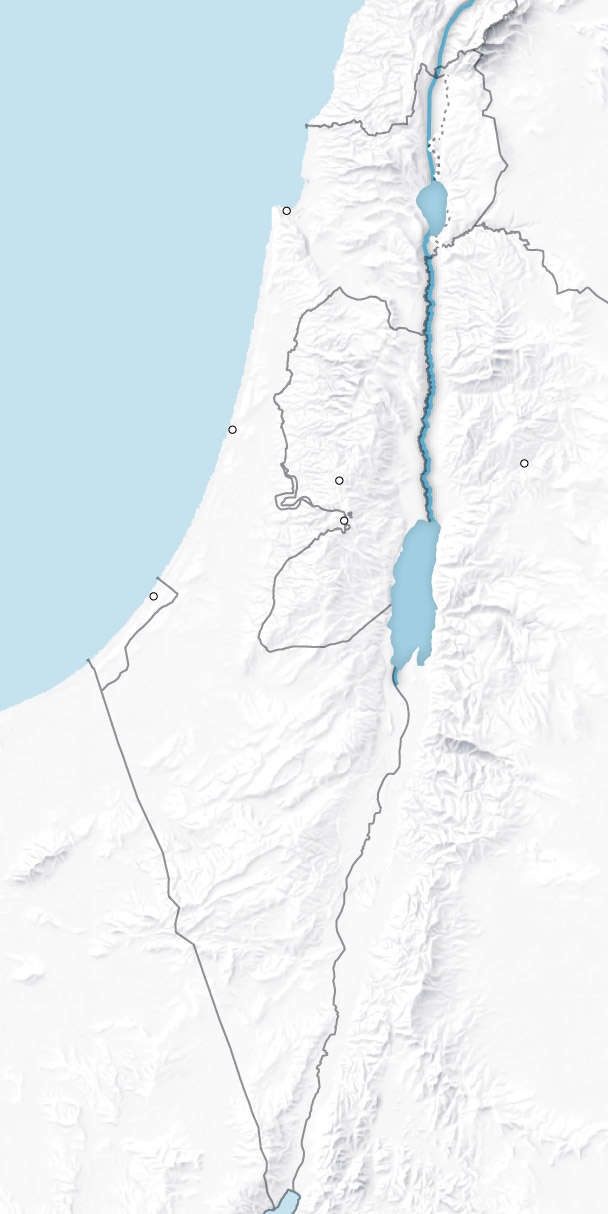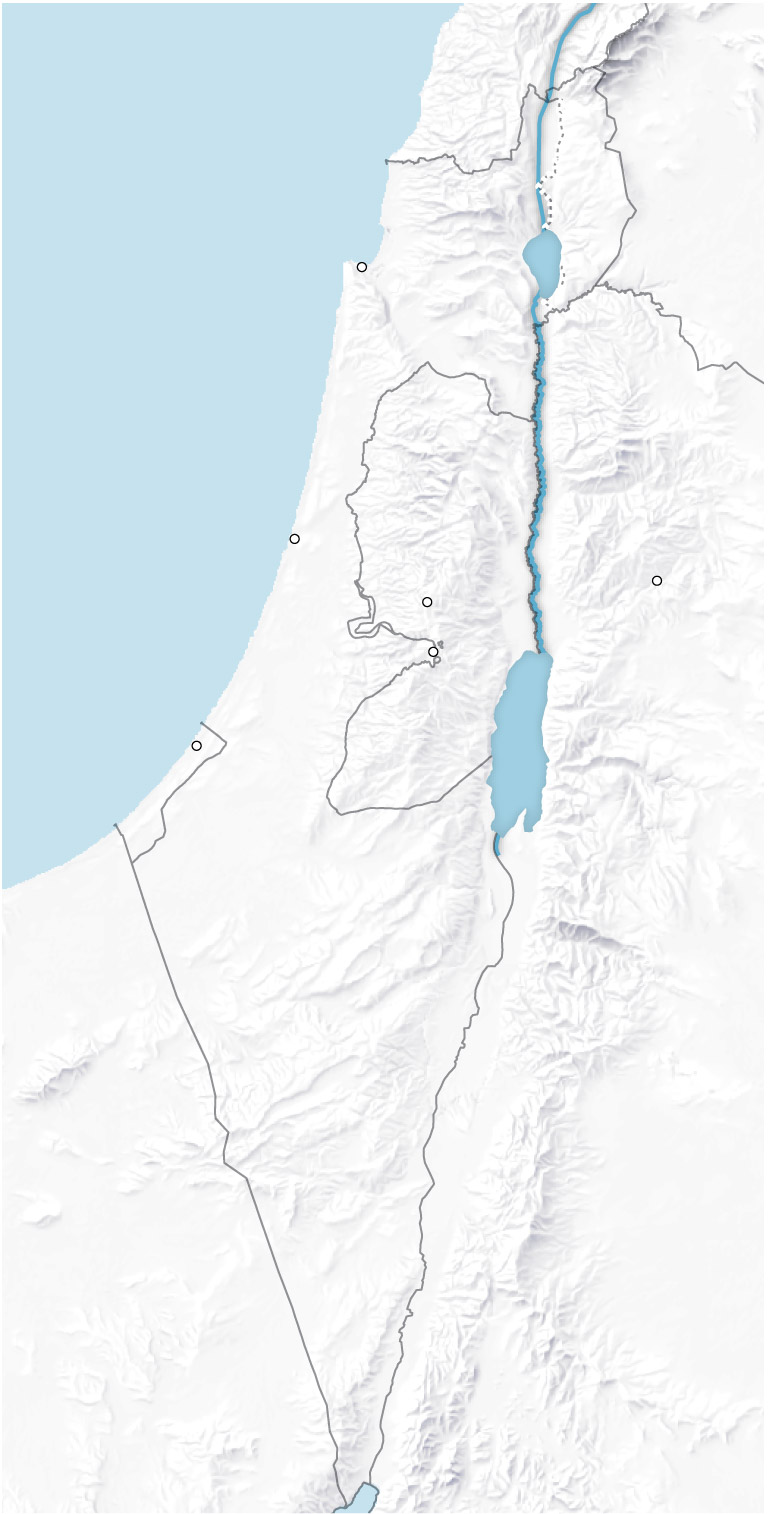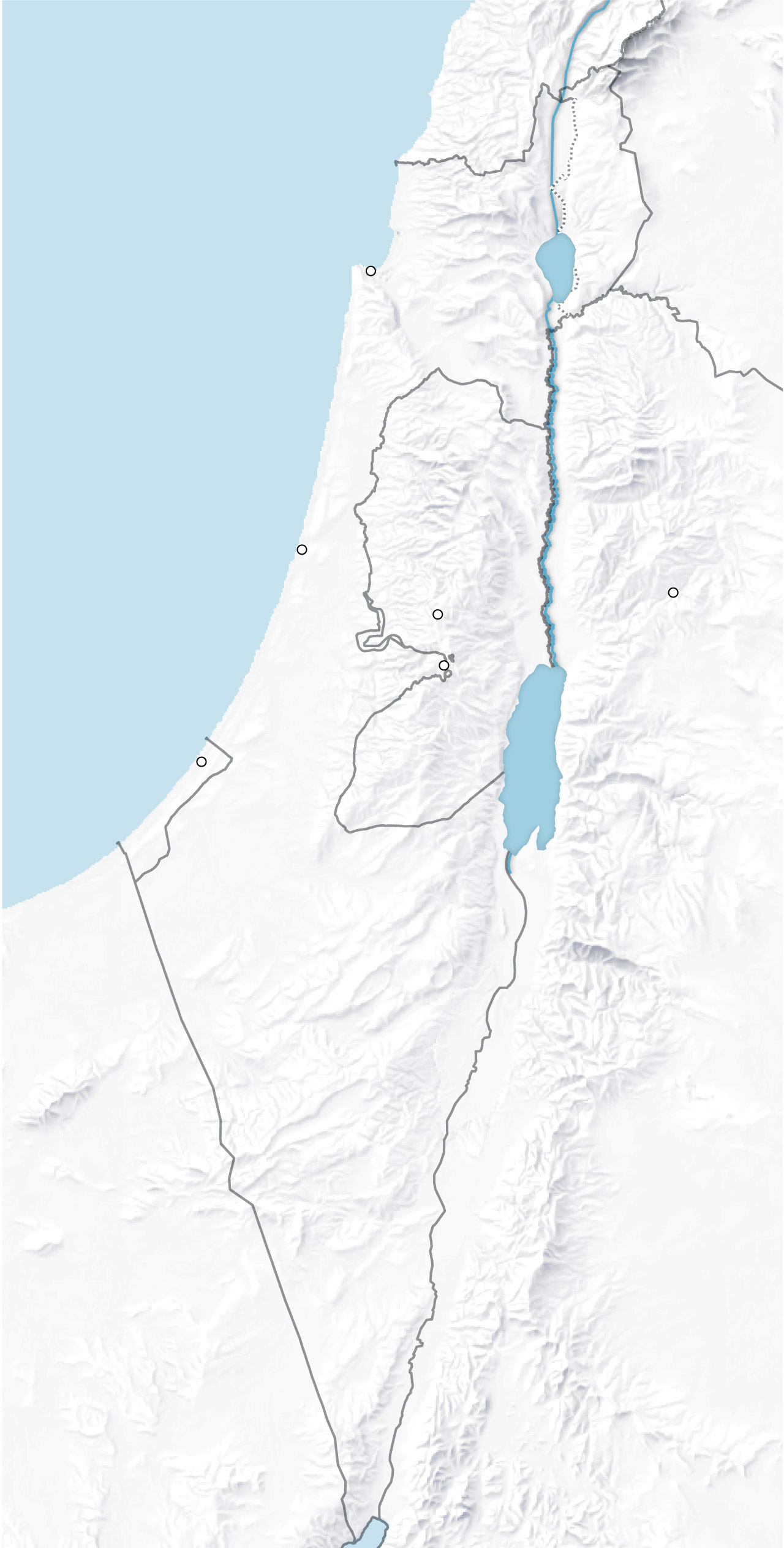
LEBANON
SYRIA
GOLAN
HEIGHTS
Annexed by
Israel in
1981, not
internationally
recognized
Haifa
Sea of
Galilee
Med.
Sea
Jordan
River
WEST
BANK
Tel Aviv
Amman
Ramallah
Jerusalem
Dead
Sea
Gaza City
GAZA
ISRAEL
JORDAN
EGYPT
THE WASHINGTON POST

LEBANON
SYRIA
GOLAN
HEIGHTS
Annexed by Israel
in 1981, not
internationally
recognized
Haifa
Sea of
Galilee
Mediterranean
Sea
Jordan River
WEST BANK
Tel Aviv
Amman
Ramallah
Jerusalem
Dead
Sea
Gaza City
GAZA
ISRAEL
JORDAN
EGYPT
THE WASHINGTON POST

LEBANON
SYRIA
GOLAN
HEIGHTS
Annexed by Israel in
1981, not internationally
recognized
Haifa
Sea of
Galilee
Mediterranean
Sea
Jordan River
WEST BANK
Tel Aviv
Amman
Ramallah
Jerusalem
Gaza City
Dead
Sea
GAZA
ISRAEL
JORDAN
EGYPT
THE WASHINGTON POST
Some people have interpreted the phrase as a call to eradicate Israel. Critics, including some Jewish American organizations, say it constitutes antisemitic speech. A rise in antisemitic attacks in the United States and Europe since the start of the war has contributed to the unease.
Pro-Palestinian activists say the phrase is encompassing enough to express a range of visions, and that the controversy about it serves to silence dissent over Israel’s assault on Hamas in Gaza, launched in response to the Hamas attack on Israeli communities on Oct. 7.
GET CAUGHT UP
The phrase has been chanted and displayed on signs at protests on college campuses across the United States amid unrest and clashes between protesters, counterprotesters and law enforcement. Intertwined in the tumult are accusations that some of the speech and actions by students protesting the war in Gaza are antisemitic.
Here’s what to know about the origins of the phrase, its connotations and the controversy it has caused.
It gained traction as a call for a ‘secular, democratic, free Palestine’
It’s not clear when the slogan emerged, but scholars say it started gaining traction in the 1960s among Palestinian activists and intellectuals who were made refugees by the 1948 war.
During that conflict, an estimated 700,000 Palestinians either fled or were expelled from their homes by Israeli forces, after which the state of Israel was established. Many of them settled in the West Bank, which was later annexed by Jordan, and in Gaza, which was administered by Egypt. (Israel captured both territories in the 1967 war with neighboring Arab states.)
Palestinian refugees began developing the idea of a “free Palestine” — a “secular, democratic, free” state, from the Jordan River to the Mediterranean Sea, Maha Nassar, an associate professor of Middle East history and Islamic studies at the University of Arizona, said in an interview in November.
Later, the phrase was taken up by supporters of the Palestine Liberation Organization, or PLO, the coalition founded in 1964 that remains the official representative of the Palestinian people at the United Nations. In the rounds of conflicts and uprisings in the decades that followed, it became popular among different Palestinian factions.
More recently, supporters of Hamas, the militant group that controls Gaza, have adopted the slogan. The group’s charter, in which the phrase does not appear, calls for a movement that “hits deep into the earth and spreads to hug the sky.”
“Palestine is ours from the river to the sea and from the south to the north,” Khaled Meshal, then leader of the group’s political wing, said in a 2012 speech in Gaza celebrating the 25th anniversary of the founding of Hamas, the Associated Press reported.
To some, it’s a call for peace
To many Palestinians and their supporters, “min an-nahr ila al-bahr,” “from the river to the sea,” is still a call for a peaceful land — though not always with the aim of a single, secular state. The slogan does not conjure “a specific political platform,” Nassar said. Instead, it is a call for an “imagined future of peace and freedom.”
It’s “a call to end the occupation” by Israel, she said, and a “call for an ability to return” to areas from which Palestinians fled or were expelled. The internationally recognized “right of return” to land and home, held by refugees including many Palestinians, has long been a key point of dispute in the Israeli-Palestinian conflict.
Rep. Rashida Tlaib (D-Mich.), the only Palestinian American member of Congress, was censured in November for her remarks about the conflict, including a video she posted on social media of protesters chanting the slogan. Tlaib, in a post on X, defended the phrase as “an aspirational call for freedom, human rights, and peaceful coexistence, not death, destruction, or hate.”
The slogan is “a demand for democratic coexistence between Jews and Arabs,” the American-Arab Anti-Discrimination Committee said in a statement defending Tlaib.
To others, it’s antisemitic
Many Jews, Jewish organizations and advocates for Israel, among others, view the slogan as antisemitic.
“The vast majority of Jews in many contexts, hearing that slogan, hear something that feels deeply threatening and offensive, and many, many Jews would characterize it as antisemitic,” Ethan Katz, an associate professor of history and Jewish studies at the University of California at Berkeley, said in an interview last year.
At best, Katz said, the slogan comes across to many Jews as a call for the end of the state of Israel. At its worst, he said, it’s a call for “the annihilation of Jews living between the river and the sea.” The attack by Hamas on Oct. 7 has amplified negative interpretations of the phrase, he said.
The Anti-Defamation League, an advocacy group devoted to identifying and fighting antisemitism, in a statement in October, described the slogan as “an antisemitic charge denying the Jewish right to self-determination, including through the removal of Jews from their ancestral homeland.”
Such fears touch on memories of genocide and displacement instilled in Jewish communities by Nazi Germany’s eradication of some 6 million Jews in the Holocaust.
Many pro-Palestinian advocates say that “from the river to the sea” does not call for the expulsion of Jews, and that extreme interpretations of the slogan are misguided. “The attempts to redefine this chant by those who are not Palestinian is an overreach and mischaracterization,” the American-Arab Anti-Discrimination Committee said.
Other defenders of the phrase contend that even maximally interpreted, it conveys an inverse of the stated ambitions of leaders of the Israeli settler movement, which has ties to the current Israeli government.
It’s “important to center those who are actually using the phrase and what it means to them” in discussions about the slogan’s meaning, Nassar said. Attacks on those who use the phrase, however well intentioned, serve to disarm Palestinians and their supporters of a powerful rhetorical tool, she said.
Intent aside, Katz said, people using the phrase should “think carefully about how the slogan is heard in this moment.”
The slogan is commonplace at college protests
Protests against the war in Gaza have been ongoing since October, but demonstrations on college campuses across the United States in recent weeks have become a focus of national attention. The phrase “from the river to the sea” can be seen and heard at many of the protests.
Columbia University in New York and UCLA are among the colleges where the demonstrations have been particularly fraught, but hundreds of people have been arrested on campuses across the country, according to a Washington Post tally.
Universities have historically been the nuclei of antiwar protests and discussions over free speech. Some of the debate over free speech at college campuses in recent weeks has centered on when free speech begins to intrude on the rights of other students, who may feel that protesters’ statements or actions create an unsafe environment for them.
Just over a quarter of U.S. undergraduate students view the phrase “from the river to the sea” as calling for Palestinians to replace Israelis in the region, even if it means forcibly expelling or committing genocide against Jews, according to a poll conducted by the University of Chicago. About the same percentage of students said the phrase meant Palestinians and Israelis should live in two separate states side by side.
But among Jewish students, about two-thirds said the phrase was calling for genocide or the forced expulsion of Jews from the territory. Among Muslim students, 42 percent said it called for a two-state solution and 14 percent said it was calling for genocide. The survey was of 5,233 undergraduate students in December and January and has a margin of error of plus or minus one percentage point for the general student population, and plus or minus two to seven percentage points when broken down by religion.
Sarah Dadouch in Beirut contributed to this report.







